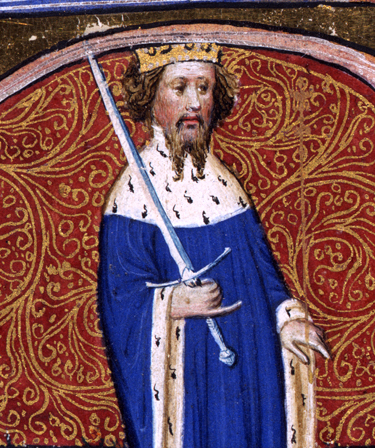Lincolnshire’s Last King by Jim Snee
 Now I’m sure some of you are immediately thinking that the kings of England are the kings of Lincolnshire and in modern constitutional terms that is the case. However, Lincolnshire has not always been part of England and it has had its own kings and queens. Sadly, as is so often the case, the queens have been omitted from history, along with many of the princes. However, the names of some of the kings are available to us.
Now I’m sure some of you are immediately thinking that the kings of England are the kings of Lincolnshire and in modern constitutional terms that is the case. However, Lincolnshire has not always been part of England and it has had its own kings and queens. Sadly, as is so often the case, the queens have been omitted from history, along with many of the princes. However, the names of some of the kings are available to us.
The first Kings of Lincolnshire that we know by name were kings of the Iron Age tribe called the Corieltauvi. The tribal lands of the Corieltauvi extend across much of the east midlands and although Leicester is usually cited as the capitol, the presence of a mint at Old Sleaford would suggest that this was an important, possibly royal, centre used by the tribal kings and princes. The names of the Kings we have are all found on coins minted by the tribe in the years immediately preceeding the arrival of the Romans. The name Volisios is the most commonly found and is believed to be the high king, with subordinate kings called; Dumnocoveros, Dumnovellaunus and Cartivelios.
The Roman conquest, which may well have been peaceful, places Lincolnshire under the rule of the Emperors of Rome. However, the shadow of the local kings may still have hung over the county. In Ancaster, two first century inscriptions have been found to the “God Viridios”. This god is found nowhere else in the Roman Empire and one explanation for that is that this could be an example of deification of a King. This practice was usually reserved for deceased Emperors, but attempts to spread the imperial cult to Britain had unexpected results, and it could be that local officials accepted the odd diversion from the true path for the sake of an easy life and “political-correctness”, if I may miss-quote Robert Graves. The Romans could be a pragmatic lot when it came to gods and goddesses, often adopting local beliefs with the addition of a Roma diety’s name. However, whether there ever was a king Viridios in fact (rather than in myth) and when they were supposed to have lived are things we have yet to discover.
Following the withdrawal of the Legions from Britain in the late 4th century, the central administration of Britain breaks down and Lincolnshire becomes its own kingdom – Lindsey. Exactly where the Anglo-Saxon kings of Lindsey came from is uncertain, but a popular theory is that as the central administration broke down Germanic mercenaries appointed as military governors became hereditary rulers. Towards the end of the 8th century, Offa of Mercia, had the geneaology of the Mercian and related kings written down and this includes a list of all the Kings of Lindsey. The list is long and includes a number of names that have historical or geographical significance. The earliest name listed is Geot, and some people have pointed out the similarity between that and the Geats mentioned in Beowulf (particularly as the traditional pronunciation of Geat in Lincolnshire would sound like Geot). There are also names associated with Lincolnshire settlements such as Winta, who gives his name to Winteringham and Winterton.
During the Anglo-Saxon period Lindsey was essentially a frontier state between Mercia and Northumbria and changed hands between the two. In approximately 679, the Battle of the Trent, accounted to be a particularly vicious and drawn out fight, finally settled the matter in Mercia’s favour. Lindsey was absorbed by Mercia and the last king, King Aldfrid was reduced to a subordinate of the King of Mercia. When the Vikings conquered Lincolnshire and made it part of Danelaw, the seat of the Viking kings was established in York.
So, if anyone wants to make the film “The last king of Lindsey” it should probably be about an Anglo Saxon called Aldfrid.
Or should it?
As with many things in history, there is a footnote. In 1367, Blanche, the wife of John of Gaunt, gave birth in Bolingbroke castle to a son; Henry. This Henry, who spoke English rather than French, went on to depose king Richard II in 1399 and was crowned King of England. So in a way, he was the last king of Lincolnshire, and a more important first. He was the first King sine the Norman Invasion to speak English. Probably in a Lincolnshire accent an’all!
